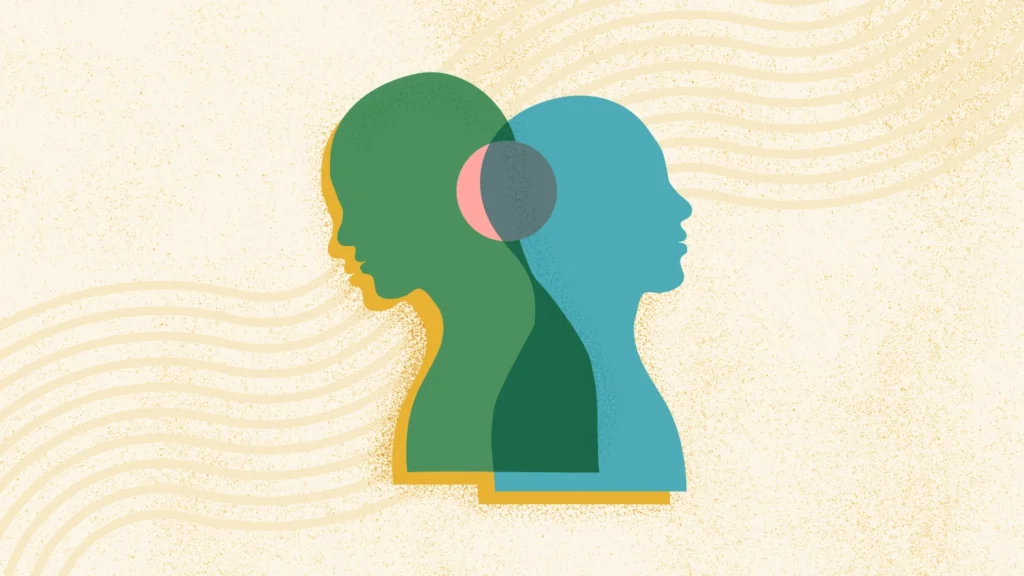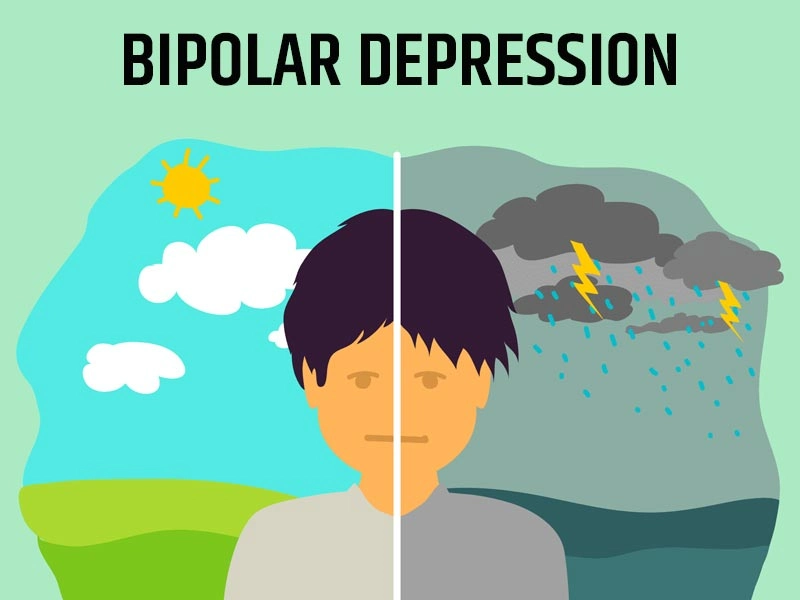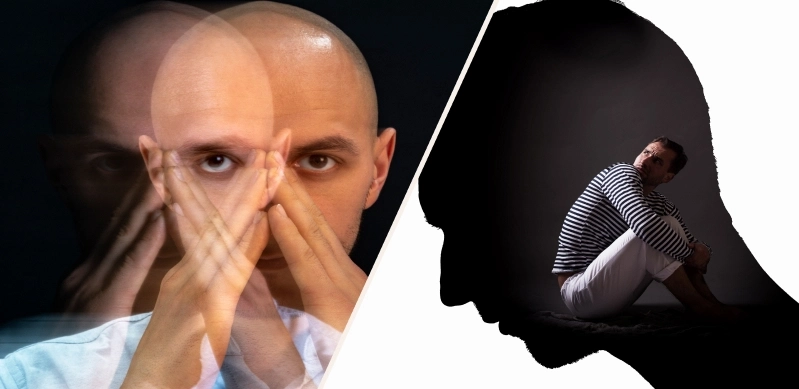Bipolar and ADHD: Attention deficit hyperactivity disorder (ADHD) shares similar signs with bipolar disorder, leading to frequent misdiagnoses between the two. However, this similarity does not prevent them from occurring simultaneously.

Roughly 3 to 6 percent of adults are affected by ADHD. Furthermore, the National Institute of Mental Health estimates that around 4.4 percent of adults in the United States will face bipolar disorder at some point during their life.
ADHD and bipolar disorder frequently co-occur. Symptoms like impulsivity and lack of focus can overlap, complicating the process of distinguishing between the two conditions.
The exact reasons why ADHD and bipolar disorder often exist together remain unclear. It is believed that factors related to genetics and biology might play a role.
Continue reading to discover what recent studies have revealed about ADHD in individuals who also have bipolar disorder.
The Relationship Between ADHD and Bipolar Disorder
ADHD and bipolar disorder are prevalent coexisting conditions. Coexisting conditions refer to two illnesses that manifest in the same individual simultaneously.
How Often Does Bipolar Disorder Occur in Those with Adhd?
A study conducted in 2018 aimed to explore the rate of bipolar disorder among a population of 2.4 million individuals born in Denmark between 1955 and 1991.
The research focused on instances of bipolar disorder in individuals diagnosed with ADHD, an anxiety disorder, both conditions, or neither.
The results showed that people with a history of ADHD were nearly 11 times more likely to be diagnosed with bipolar disorder than those who did not have a prior ADHD or anxiety diagnosis.
Moreover, individuals previously diagnosed with both ADHD and anxiety had a 30 times higher incidence of bipolar disorder compared to those without either diagnosis.
How Prevalent Is ADHD in Individuals Diagnosed with Bipolar Disorder?
A 2021 review of numerous studies evaluated the occurrence of both bipolar disorder and ADHD in over 646,000 participants.
The findings indicated that approximately 1 in 13 adults with ADHD also received a diagnosis of bipolar disorder, whereas about 1 in 6 adults with bipolar disorder had ADHD.
What Explains the Frequent Co-Occurrence of Bipolar Disorder and ADHD?
The reason behind the simultaneous presence of bipolar disorder and ADHD is still not completely understood. One proposed explanation is that overlapping genetic and biological influences may contribute to this association.
In a study conducted in 2015, researchers analyzed data from 13,532 twins to investigate the extent to which genetic factors influence the manifestation of ADHD in individuals with bipolar disorder.
The study revealed that genetic influences related to mania were associated with ADHD symptoms in 25 to 42 percent of cases, indicating a possible biological link between the two disorders.
What Is the Prognosis for Individuals Diagnosed with Both Adhd and Bipolar Disorder?
Individuals diagnosed with both ADHD and bipolar disorder may face more intense symptoms compared to those with just one of the conditions.
Research published in the Journal of Affective Disorders in 2015 found that individuals suffering from both conditions reported a higher number of suicide attempts compared to those with solely bipolar disorder.
Numerous studies have indicated a correlation between ADHD and:
- an earlier development of bipolar disorder
- an increased occurrence of mood fluctuations
- heightened aggression towards others
Identifying ADHD Alongside Bipolar Disorder
Still on Bipolar and ADHD, when diagnosing bipolar disorder in someone with ADHD, a healthcare provider will adhere to the standards outlined in the latest version of the American Psychiatric Association’s Diagnostic and Statistical Manual.
ADHD and bipolar disorder may present overlapping symptoms like hyperactivity, inattention, and lack of self-control, which complicates the diagnosis process.
Bipolar disorder tends to be episodic, with episodes of mania and depression usually being brief.
Individuals with ADHD typically exhibit more stable symptoms. This distinction can provide insight for a clinician regarding which condition might be affecting the patient.
Some experts view the diagnosis of ADHD and bipolar disorder as separate from other types of ADHD.
Managing ADHD and Bipolar Disorder

Research into the most effective treatments for individuals with both ADHD and bipolar disorder is somewhat limited. The combined treatment for these disorders relies more on clinical judgment than on a universally accepted set of protocols.
A publication from 2017 in the Journal of Psychiatry and Neuroscience suggests that it might be beneficial to address bipolar disorder symptoms initially.
After successfully managing bipolar symptoms, treatment can shift focus to ADHD through medication.
Nonetheless, this advice is intended as a guideline for practitioners rather than a concrete plan. More research is required to identify optimal treatment options.
Bipolar disorder treatment generally includes both medications and therapies. Medications prescribed for bipolar disorder are:
- mood stabilizers
- antipsychotic medications
- antidepressants
- benzodiazepines
- symbyax
ADHD Treatment Frequently Involves Medication, Primarily Central Nervous System Stimulants.
In continuation on Bipolar and ADHD, some studies indicate that stimulants used for ADHD may provoke manic or psychotic episodes in patients with both ADHD and bipolar disorder. Conversely, other research indicates that individuals with both conditions may respond positively to these medications.
A significant study from 2016 discovered that methylphenidate (Ritalin) could be a viable treatment choice for those with ADHD and bipolar disorder who are using mood stabilizers to control bipolar symptoms.
The research indicated that individuals not on mood stabilizers had a 6.7-fold increase in manic episodes within a three-month timeframe.
Summary
ADHD and bipolar disorder exhibit comparable symptoms and are frequently misidentified as one another.
Many individuals experience both disorders simultaneously. Those with ADHD and bipolar disorder may exhibit more intense symptoms than those with just one of the conditions.
Further investigation is needed to determine the most effective treatment approaches for those with both ADHD and bipolar disorder. It has been proposed that addressing bipolar disorder first before managing ADHD symptoms may be the ideal strategy.







